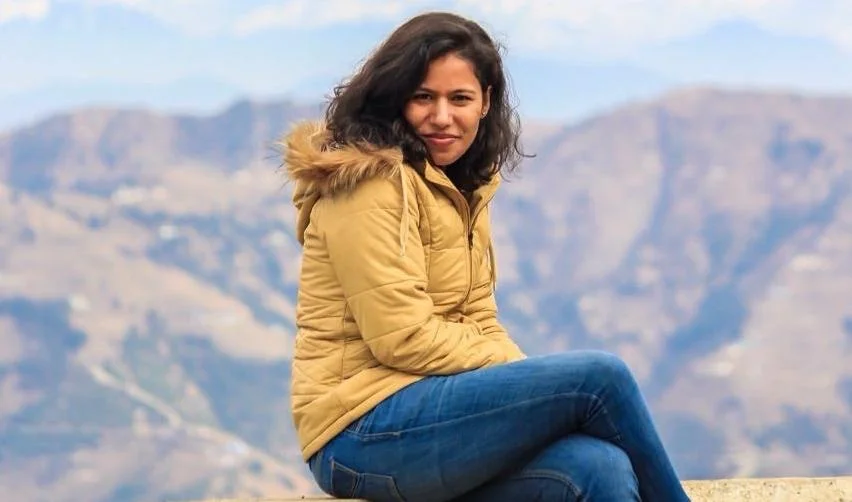Alumni Update: Aniket Baksy
Figuring Out What Economics Is
Before I get to that, a blurb about me. Early in 2009, when I was in class 9, I remember arguing with an Uncle about the need for a recently announced INR 60,000 crore agricultural loan waiver. It was late, and the conversation concluded with him jokingly recommending I study some economics. A decided IIT aspirant, I shrugged and picked up a textbook, as dismissive as I could be of a “social study subject”. And then, I went on to study economics in class 11 and 12, and then for three years in Delhi. The Inlaks Scholarship then allowed me to spend two transformative years in London. I’ll be spending the next five (at least) doing a PhD at Stanford. By 2022, I’ll have studied economics at a university level for nearly 10 years straight.
Most reactions to this among friends and family alternate include a raised eyebrow. After all, “Economics” is the study of “business”, “stock markets”, “investments,” and the Budget. It’s just the study of how to make money, right? How can this ever be interesting to anyone? I guess this reaction is unsurprising – economists are usually only visible on the business pages. It’s also unfortunate. My 5 years in economics so far have included courses in Mathematics, Statistics, Logic, Political Philosophy, History, Geography and even literature. I’ve barely spent any time learning how the stock market works or reading the budget, and like most of us in our early twenties, I have an at best limited knowledge of how to make money.
Undoubtedly, some economists do work in finance. Economists also study marriage (http://www.nber.org/chapters/c2970.pdf), voting behaviour (https://www.jstor.org/stable/2938959), racial discrimination by Uber drivers (http://www.nber.org/papers/w22776) and Airbnb hosts (http://www.benedelman.org/publications/airbnb-guest-discrimination-2016-09-16.pdf), and how to match kidney donors to patients (http://www.nber.org/papers/w10002). Economists have contributed to the theory of optimisation (http://flash.lakeheadu.ca/~mshannon/Dixit_Optimization_in_Economic_Theory.pdf) and to statistics in the form of econometrics (the most important contribution being here (http://www.jstor.org/stable/1912775?)). As an undergraduate, I thought of studying development economics and public policy. By the end of my MSc I was studying how unconventional monetary policy affects interest rates. Now, on starting my PhD, I’m leaning towards mechanism design, the study of how best to design institutions that facilitate exchange.
What’s common to the above? 5 years on, I think the common element here is the study of choice (FOOTNOTE: Lionel Robbins, at the LSE, was probably the first to come up with this definition – economics was framed as the study of human behaviour as a relationship between ends and scarce means with alternative uses. See here (https://mises.org/library/essay-nature-and-significance-economic-science)). The stock market involves people making financial decisions, and so it’s a subject of study under economics. Uber drivers continuously choose whether to accept or reject clients, and become subjects for economists to study. What economics contributes to any general problem of choice is a framework, a model, that lets one find the best choice, given the circumstances and constraints the choice is made under.
John Maynard Keynes takes an entire paragraph to discuss what an economist must be, and it’s a paragraph that includes the words Mathematician, Historian, Philosopher and Politician (page 321, here (https://economicsociologydotorg.files.wordpress.com/2015/03/keynes-19241.pdf)). A tall order. It’s unsurprising that Economics as a field of study faces challenges. It’s more insular than the other social sciences – we rarely cite outside economics, unlike our peers in sociology or history (http://www.sciencespo.fr/newsletter/actu_medias/11363/maxpodp14-3.pdf and https://www.theatlantic.com/business/archive/2015/04/economists-still-think-economics-is-the-best/390063/). It’s prone to a sense of superiority over other fields, largely due to its outsize influence on policymaking (https://www.nytimes.com/2015/01/24/upshot/how-economists-came-to-dominate-the-conversation.html?mcubz=0). Graduate students in economics rarely read political economy – we’re usually busy understanding why convex-valued closed-graph correspondences on nonempty, convex and compact domains have fixed points. This makes for a field that at times may seem detached from reality and somewhat siloed. To be fair, this is changing – modern data and techniques make the subject more open to multidisciplinary perspectives and receptive to alternative modes of analysis, especially since the financial crisis. But this is yet to be reflected in teaching and training, in syllabi and in textbooks.
The modern economist can understand choice only if she’s culturally sensitive, willing to understand just how differently people from around the world think and respond to the unique challenges of today. This is where studying abroad helps. An education at LSE, where students from every conceivable background share a lecture theatre, broadens the idea of everything economics can and should encompass, something for which I’ll always be grateful to the Inlaks Scholarship. In LSE’s cafes and seminars, one bumps into anthropologists, historians and students of finance, each of whom brings a unique perspective to any given problem of choice. With one of the largest departments in the world, there’s someone in every subfield of the subject just a few cubicles away. I’ve worked on projects ranging from the effects of Brexit to the history of the public university in Germany to understanding the movements of scientists in Renaissance Europe.
My current research agenda, studying how to better design public institutions to improve public service delivery, will draw lessons from history and insight from political science. The design of marketplaces has traditionally been a question of creating the “right” incentives by designing mechanisms correctly. However, responses to the same set of incentives to mechanisms vary across cultures, across groups and across geographies. Is there anything common underlying these responses? If so, can we use this to make for better government, potentially improving the lives of millions who rely on public schools and hospitals? The benefits of a well-made choice are usually underestimated. If so, that’s a good enough excuse for me to indulge a love for economics.







